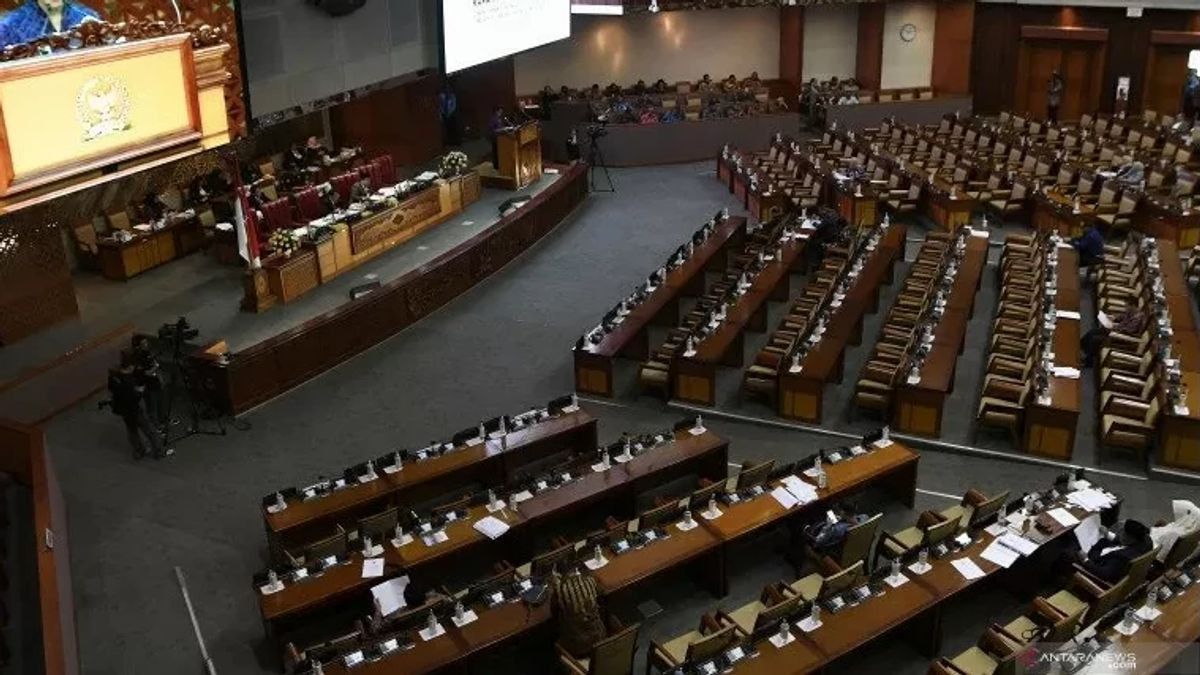JAKARTA - The article on insulting the president is still included in the final draft of the Draft Criminal Code (RKUHP). However, the government added an explanation for the criticism.
This was explained by Deputy Minister of Law and Human Rights Edward Omar Sharif Hiariej when submitting the draft RKUHP to the Indonesian House of Representatives today, Wednesday, July 6.
"So we add to the explanation that the criticism is meant to be carried out in the public interest to protect the interests of the community which is expressed through the right of expression and the right to democracy," said Edward at the Indonesian Parliament Building, Wednesday, July 6.
Insults to the president and vice president are contained in Articles 218 to 220 of the draft Criminal Code Draft. Here are the contents:
"Every person who publicly attacks the honor or dignity of the President or Vice President shall be sentenced to a maximum imprisonment of 3 (three) years and 6 (six) months or a maximum fine of category IV."
"It is not an attack on honor or dignity as referred to in paragraph (1) if the act is carried out in the public interest or in self-defense."
Furthermore, it is explained in Paragraph (1) that what is meant by attacking one's honor or dignity is to demean or damage one's good name or self-respect.
Then in Paragraph (2) it is explained that what is meant by being carried out in the interest of is protecting the interests of the community which is expressed through the right of expression and the right to democracy, for example through criticism or opinions that differ from the policies of the president and vice president.
Meanwhile, the definition of criticism in the RKUHP is to express opinions on the policies of the president and vice president accompanied by descriptions and considerations of the pros and cons of these policies.
"Criticism is constructive and as far as possible provides an alternative or solution and/or is carried out in an objective manner," the latest draft is quoted as saying.
"Criticism contains disapproval of the actions, policies, or actions of the president and other vice presidents. Criticism can also be in the form of exposing mistakes or shortcomings that are seen in the president and vice president or recommending the replacement of the president and vice president in a constitutional way," continued the explanation in the article. the.
In addition, criticism must not be carried out with malicious intent to degrade or impair the dignity and/or character of the president and vice president.
The English, Chinese, Japanese, Arabic, and French versions are automatically generated by the AI. So there may still be inaccuracies in translating, please always see Indonesian as our main language. (system supported by DigitalSiber.id)









